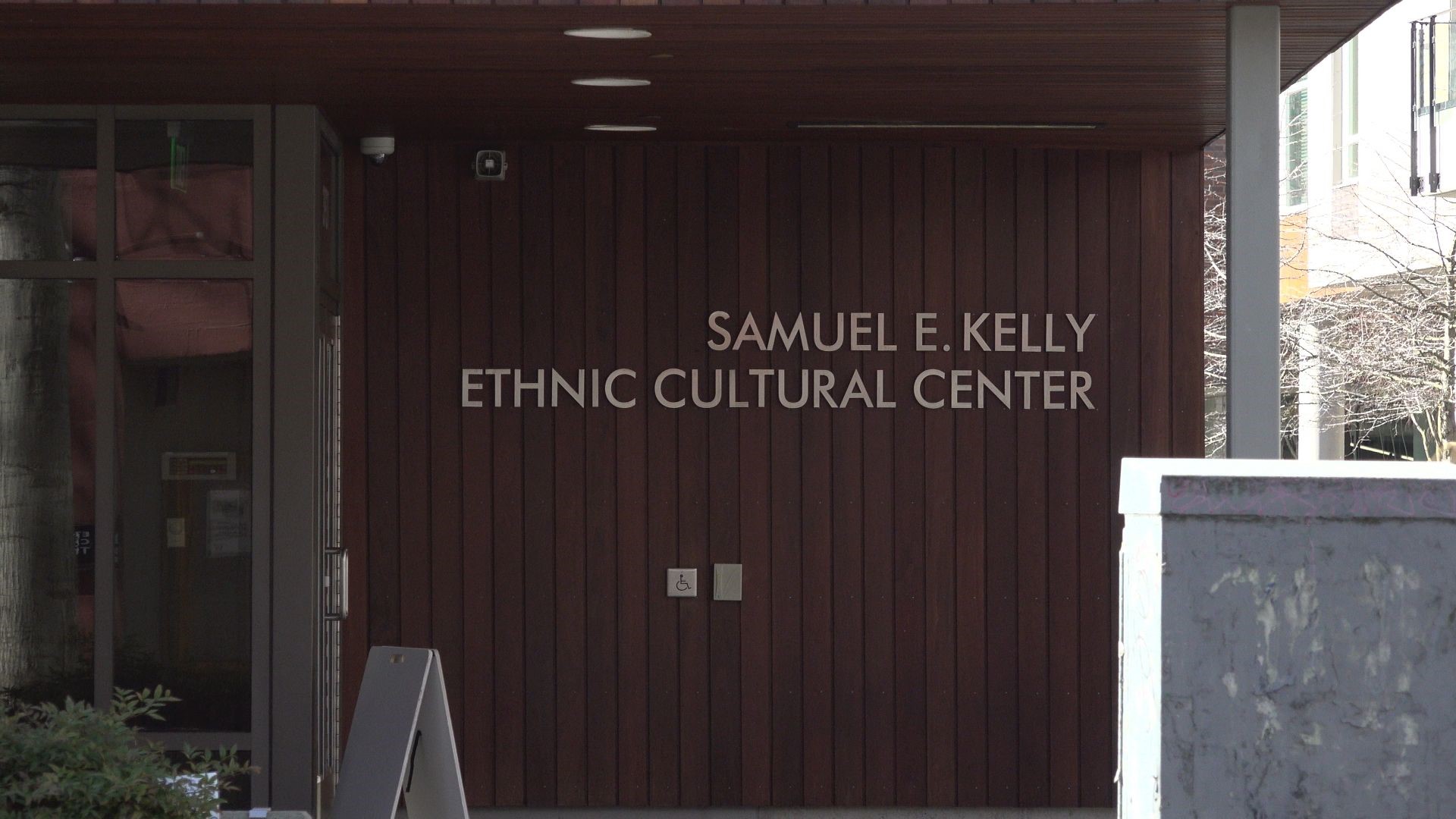SEATTLE — This school year, the University of Washington's Samuel E. Kelly Ethnic Cultural Center (ECC) celebrates its 50th anniversary.
UW will honor its rich legacy and history with a celebration on March 3- but the significance of the ECC can be felt daily, just by speaking with staff or students who frequent it.
"It's very scary being a first-generation student and not knowing what to expect and coming to a predominantly white institution," UW student Diana Paola Vergara said. "You go to a class and you're like- oh no, no one else looks like me. I'm the only one. But then you come here to the Ethnic Cultural Center, you breathe and you're like, now this- this is my home away from home. There's people who look like me, there's people who maybe speak my language or get what I'm going through."
Vergara is heavily involved in Leadership Without Borders- one of many organizations with offices inside the ECC. Calen Garrett, too, shares an experience finding connection and community through the center.
"It helped me find my fraternity, Alpha Phi Alpha fraternity, and that really helped me out especially being in the STEM program, because normally I got used to being the only person of color in any of my classes, but when I get to my frat I wasn't the only Black student anymore," Garrett said. "Not only people that are currently in school as students, but a whole alumni network of brothers who've been there, who've done that, and let me have that extra level of focus."
Garrett came to UW from California and began school not knowing anyone. Now, he has a broad network- much in part to the ECC.
"Three years ago feels so long in terms of how far I've come, with the ECC," Garrett said. "To have this support system- it's something I don't know where I'd be without and it was really powerful for me to have that community from the jump, people that never met me and never talked to me wanted to open up and give me that space."
The center was born out of student activism. The Black Student Union protests in 1968 led to the creation of the Office of Minority Affairs & Diversity. The office opened the Kelly Ethnic Cultural Center in 1971 and became a "home away from home" for many underrepresented and marginalized students. You can view a full timeline of the center's history here.
"I think back to when the ECC was established and during that time it was so important for students- think about the few students of color who were on campus, to have a place where they know they can come and they can feel connected and know they belong, see representations of them," UW Vice President for Minority Affairs and Diversity Rickey Hall said. "We're still struggling with some of those things, and especially as a large institution, I think we made lots of strides over the last 50 years, we still have a long way to go. And, it's just important to have a place where students know they can come, they can see people who look like them, and that the programs and services we create, that were designed with them in mind, that they're culturally appropriate."
Hall says he's inspired by the continued activism of students he sees present on UW's campus today.
"They believe that this is their institution, as they should, and they believe that they should be treated fairly and equitably," Hall said. "This is a generation that will not be denied. It gives me great hope, it gives me promise- at a time where sometimes it can be hard to have that hope, right?"
Letauaeletise "Tise" Hunkin says the center has been central to her time as a UW. But she echoes that need for continued change- and ties campus history to the future she hopes to see.
"How monumental it is that we still have this space, and we're still... students on campus are still fighting for more space that we deserve and that we have the right to- it doesn't just stop here," Hunkin said. "Students deserve to have more than just one building on campus and one space where they feel okay to be their authentic selves, and I think that's really important we look back on the history of the ECC and how it came from protests, and we're still protesting today."

